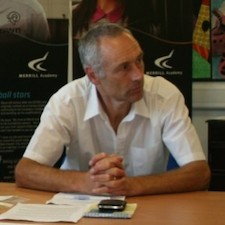Our work is rooted in a commitment to social justice. We translate that commitment to action in a number of different areas:

Participation is a human right, and it brings better results. Our work started in youth participation, supporting the rights of children and young people to shape the decisions and services that affect their lives. Today we also work on participation processes in many settings, from open government to mental health to user engagement in research.

Community is vital. Whether its a local neighbourhoods, or a global community of practice, groups discussing and working together are a key force for social change. We work at the grassroots, supporting local planning and delivery, resident leadership, and community campaigning - and at a global level, building networks that bridge between research, policy and practice.

We need social change organisations that are fit for purpose to deliver on their vision and mission. Our work, rooted in years experience with small and large organisations, aims to support them through strategy development, coaching, facilitation, reflection and review.

All projects today have a digital dimension. Technology choices should not be an afterthought - but should be a core part of any strategy. Digital tools shape the way projects are delivered and experienced. We connect in-depth research, with accessible explanations and capacity building to support critical, inclusive and effective use of data and digital technology.
Every project we work on is bespoke: tailored to the needs of the social change organisations we work with. However, we often work in three main roles:
Strategy, planning, facilitation and action for big and small projects. From one-off workshops on project design, to co-designing new initiatives with you, and setting them on a sustainable path to success.
Supporting change with insights, analysis, tools and publications. We undertake both short term research commissions and multi-year evaluations. We're committed to participatory research approaches and to shared learning.
Working with partners over the long-term. We'll provide mentoring, capacity building, support and external expertise and input when you need it most.
Based in the UK, we work right across the country, as well as on international projects. To discuss how Practical Participation could support your work, just drop a line to any of the team below.

Open government & technology

Participation & community development

Evaluation & research
To explore new project opportunities you can get in touch direct with any of the directors. Each of the team focus on particular speciality areas. On a number of projects we also work with a network of associate consultants, including the team below.

People and organisational development

Youth policy

Young People Friendly Neighbourhoods was a two year England programme funded by the DfE across 20 neighbourhoods. It was led by Groundwork and supported by Sanctuary Housing, Youth Access and FPM . Bill led the FPM consultants team, enabling local partnerships to build sustainable community-led provision for generic and targeted youth work at a time where funding and provision via local authorities were shrinking on average by 60%.
The FPM team also drew out and shared learning, including the potential of housing associations in brokering community conversations and energising long term solutions. Bill has applied some of this learning while working with Plus Dane, Affinity Sutton , the first youth mutual Circle Crew for Change and on the national Big Local programme.
Much of the material and summary findings are available in our archive of resources and learning .

There are over 170,000 known young carers in England. The Children’s Society Include project has being at the heart of promoting young carers’ voice and influence, leading to significant improvement in policy and practice across England and internationally these last 15 years. Practical Participation has contributed in a range of ways to this movement, including through capacity building in local authorities and the third sector, developing resources such as the Engage Toolkit and in evaluating the current Young Carers in Focus programme.
Jennie is working with Young Carers in Focus (YCiF) Funded by a Youth in Focus grant from the Big Lottery Fund, this four-year programme is establishing a national network of young carers aged 10-25. Led and informed by young people, YCiF allows young carers to communicate, share stories and campaign for the things that matter most to them. The YCiF network is being developed by young carer ‘champions’, who are receiving training and skills to help them raise awareness about the issues they and other young carers face. Not only are they are reaching out to other young carers across the country, they are also informing policy and decision-makers about the changes they want to see at local and national level. Jennie is working with a group of young people from the project to evaluate its impact.

Valley House is a multi-service agency operating from its community base the North East part of Coventry and serves the people of Coventry as well as its local community.
The Whole Shabang youth project was funded by the Big Lottery until 2014 its main aims were:
Jennie and Bill worked with The Whole Shabang to evaluate the project from the point of view of the young people. The report is available here. In December 2014 Valley Housing heard their application to the Big Lottery’s Reaching Communities fund to further develop their work with young people had been successful.
“We commissioned Practical Participation to undertake an evaluation of the Whole Shabang, our Big Lottery funded youth wok project. We wanted to further develop our programmes for young people, but wanted future work to be rooted in their needs and aspirations, and on the lessons learned over four years of initial funding. Practical Participation spent significant amounts of time with young people who have used the project over the years – and their voices were central to the report. We used the recommendations to apply to Reaching Communities for a further 3 years of funding and heard this month that we have been successful. We were very happy with the evaluation and particularly the methods used to engage young people – we hope to work with Practical Participation in the future to ensure that participative evaluation is built in to the next phase of the project.“ Jo Aubrey, manager Valley House

U R Boss is a project funded by the BIG lottery and is part of the Howard League for Penal Reform.
U R Boss supports young people in the criminal justice system to secure their legal rights and have an impact on policy and services that affect them. Jennie and colleagues from De Montfort and Durham universities are undertaking an evaluation of the impact of the project. We have been working with a group of young researchers to help inform the evaluation of this exciting project.
Two interim evaluation reports, and the final report are available on-line:

Leading for the Future is a resource created by Practical Participation working with The Woodcraft Folk.
Leading for the Future is designed to support local woodcraft folk groups to explore and develop their understanding of leadership, learn new skills and grow in confidence as young leaders. It is a set of activities, exploring different aspects of leadership, developing new skills and putting them into practice.
You can find the guide to download on the woodcraft folk website, or access a wide range of resources on our archive of learning from the project here.

Skills for the active involvement of children and young people in making change happen
Act by Right is a resource to support action and change. Written by Bill Badham in 2004 and updated in 2009, it arose out of a strong belief in children and young people’s right to activism and concern at the lack of robust but accessible resources to support this. It is based on a five stage journey and uses activities to build knowledge and skills to better equip activists to build and sustain campaigns to make things better where they live or on the things that are important to them.
Alex Farrow worked to create a remix of Act by Right for Climate Change campaigning, which contains all the core Act by Right resources, plus some extra climate change related activities.
It is available free online at www.actbyright.org.uk.

The 360 Giving project set out a five-year ambition for open philanthropy in the UK: to see trusts and foundations reporting on the grants they give - supporting more informed, effective and transparent grant making across the country.
At a workshop in June 2013, participants identified the need for a data standard that would help trusts and foundations to publish information on their grant-making activities. As a result of those discussions, Nominet Trust and Indigo Trust sponsored a small-scale research and development project, led by Practical Participation, to explore:
Through a series of rapid research 'sprints', we delivered a prototype standard, and are now working to support the wider adoption of a fully developed data standard.

Working as a staff consultant at the World Wide Web Foundation, Tim was research lead for the IDRC funded CAD $2m two-year Exploring the Emerging Impacts of Open Data in Developing Countries (ODDC) project.
Working with 17 partner organisations across 12 countries, the ODDC project combines research capacity building with in-depth research work to understand how open data is being used to affect governance and decision making in different settings around the world.
A selection of research outputs can be accessed on the project website, including:
As part of this project, Tim also led the development of the Open Data Barometer, managing the research process in 2013 and 2014, and acting as lead author for the reports.

Working with David Wilcox, Tim and Alex put together a crowdsourced provocation paper on the role of technology to support young people, helping to shape the £2m Digital Edge Nominet Trust funding programme.
David has documented the process of creating the paper over on the Social Reporters website. We combined online discussions, collaborative documents and face-to-face events to identify 10 key issues to consider in using digital technology to address key social challenges faced by young people. Alex then looked for existing online evidence related to the key messages to help deepen the insights shared in the report.
The method we developed has gone on to be employed in a range of future projects.

The DFID CSO Youth Working Group is a network of UK organisations seeking to strengthen the young people’s participation in development, promote youth policies and programmes within the Department for International Development and champion youth issues globally.
In 2012, Alex and Tim supported the YWG to assess the implementation of the "Youth Participation in Development Guide” and evaluate its impact on donors, governments, civil society and young people. A programme of support mechanisms were considered to support organisations use the guide as a practical tool for youth development.
Working with all members of the network, the strategic direction, capacity and priorities of the YWG were explored and articulated in a refreshed mission statement, aims and programme of activity. A briefing paper on Youth Livelihoods was drafted, with project briefs for each of the activities of the YWG produced.